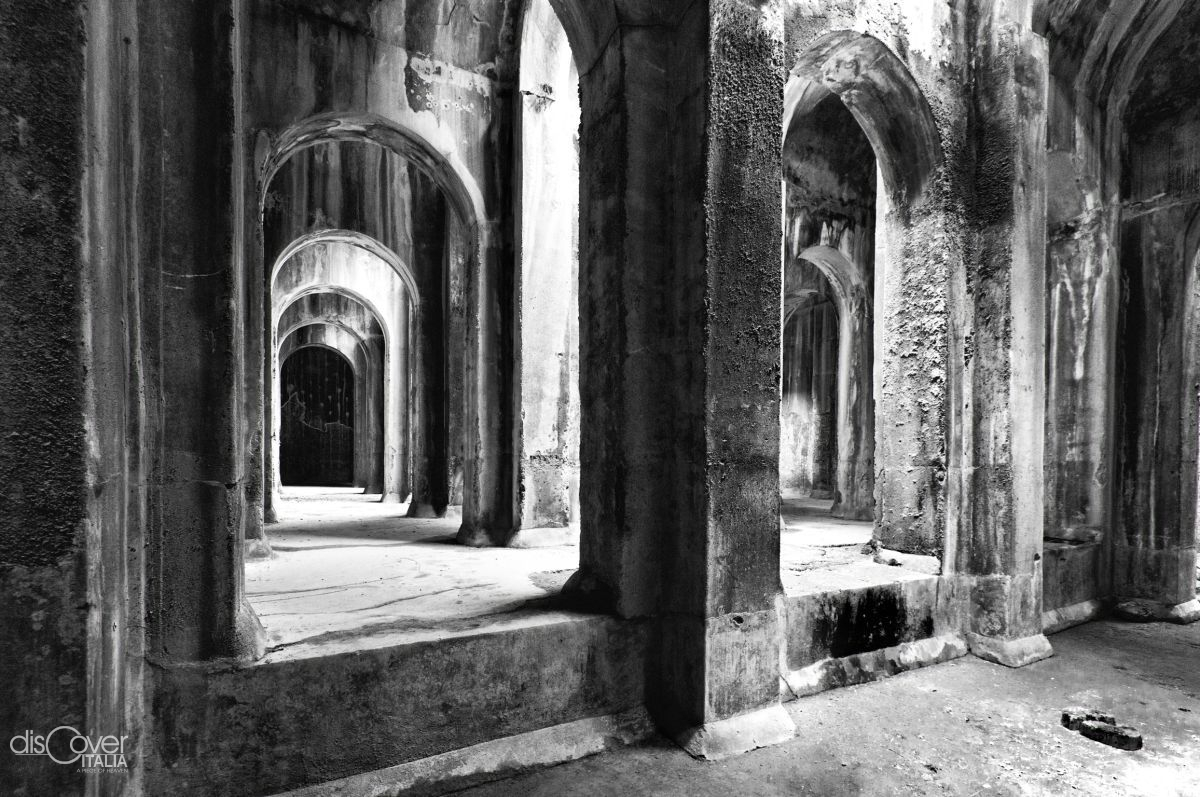
The beauty of the promontory overlooking the Phlegraean Coast had already attracted the attention of Gaius Marius, who built a villa there. It later became the property of the famous Cornelia, mother of the Gracchi, and finally became the property of General Lucius Licinius Lucullus, owner of another large residence in nearby Naples.
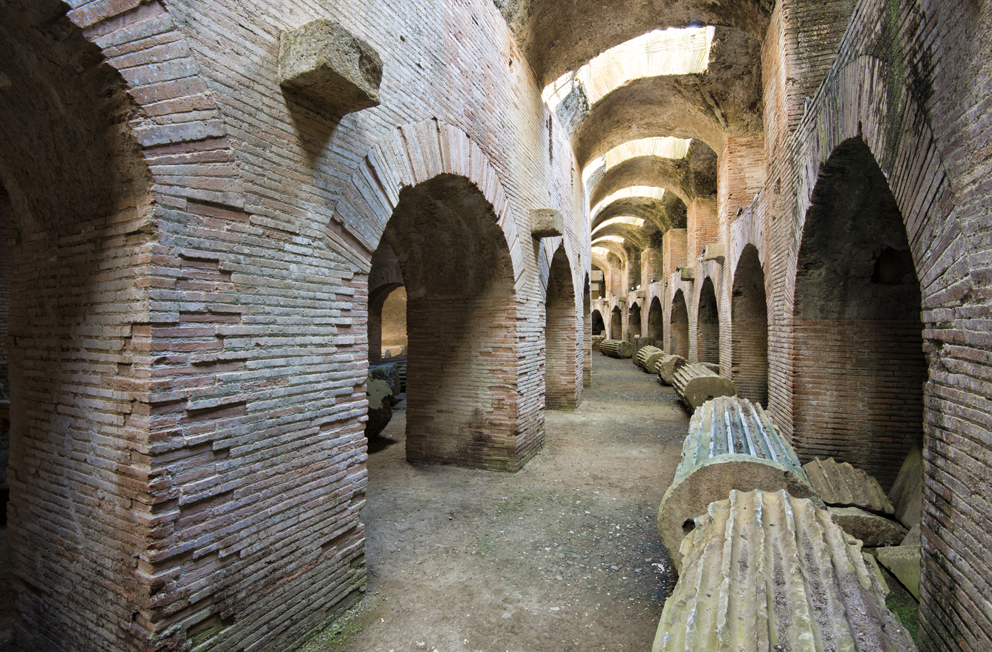
The Flavio Amphitheatre, which has the same name as the eternal city, it is the third largest after the Coliseum in Rome and the one of Maria Capua Vetere, in Capua.
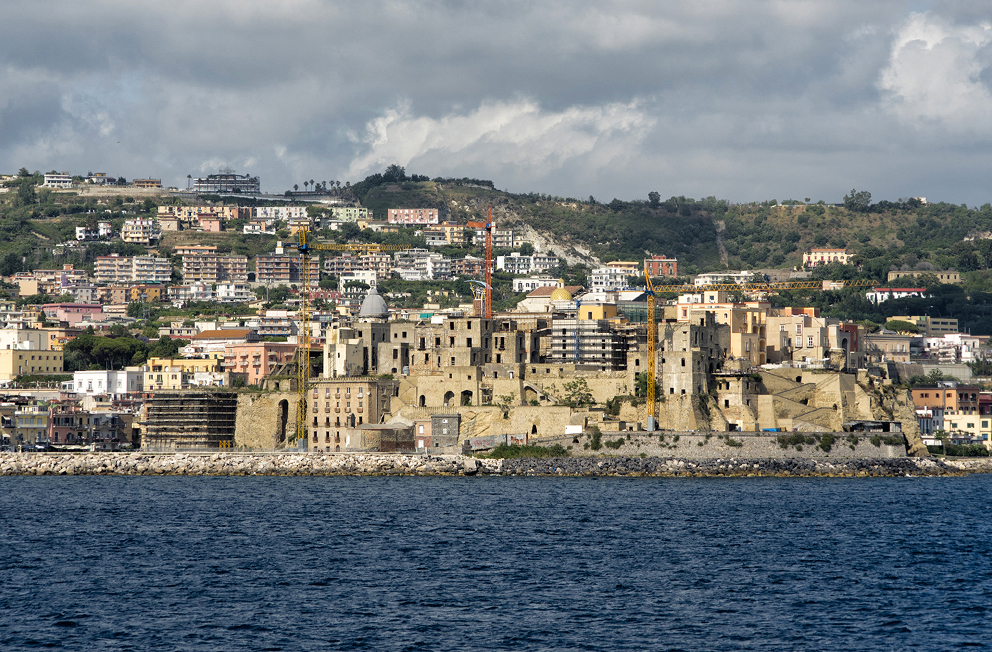
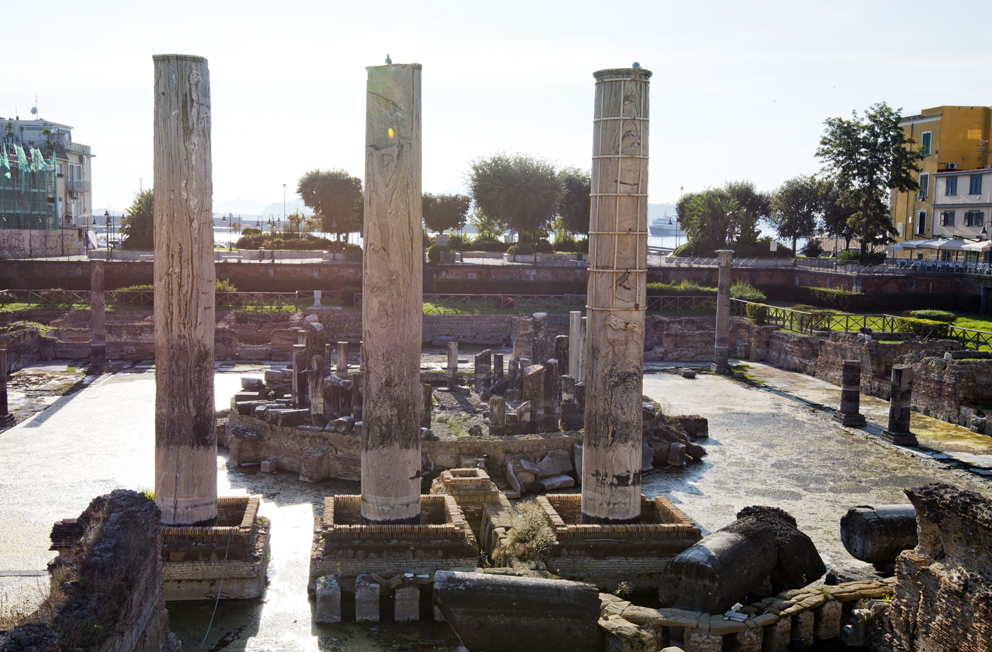
The most singular monument of Pozzuoli is the macellum, or the public market, better known as the Temple of Serapis for the discovery of the statue of the Greek-Egyptian god seated on a throne with the calathos on his head, a basket, symbol of abundance and fertility.
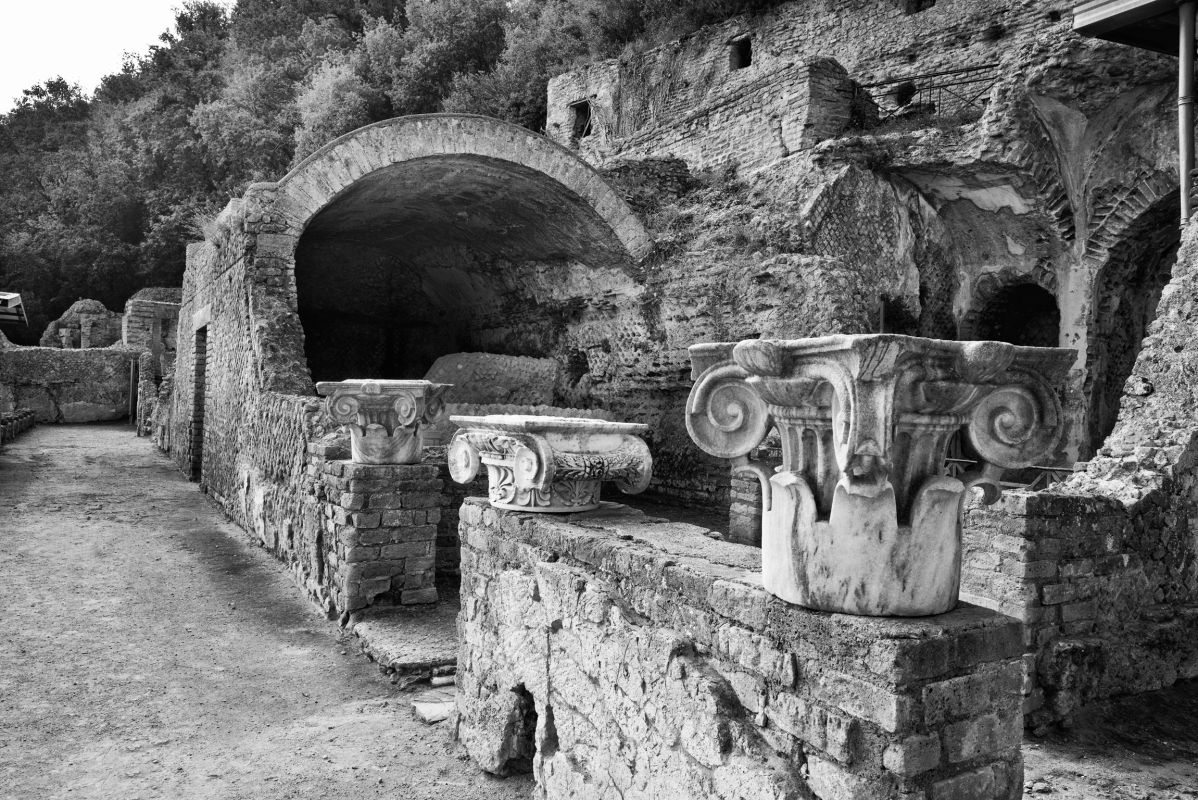
Regarding the origins of the city, the most conformed hypothesis is that it was founded around the 8th century b.C by the habitants of the nearby Pithekoussai (Ischia) coming from the Euboea cities of Chalcis and Eretria. In a very short time, it became a flourishing and powerful city, and it extended its influence on the phlegraean and Parthenopean gulf.
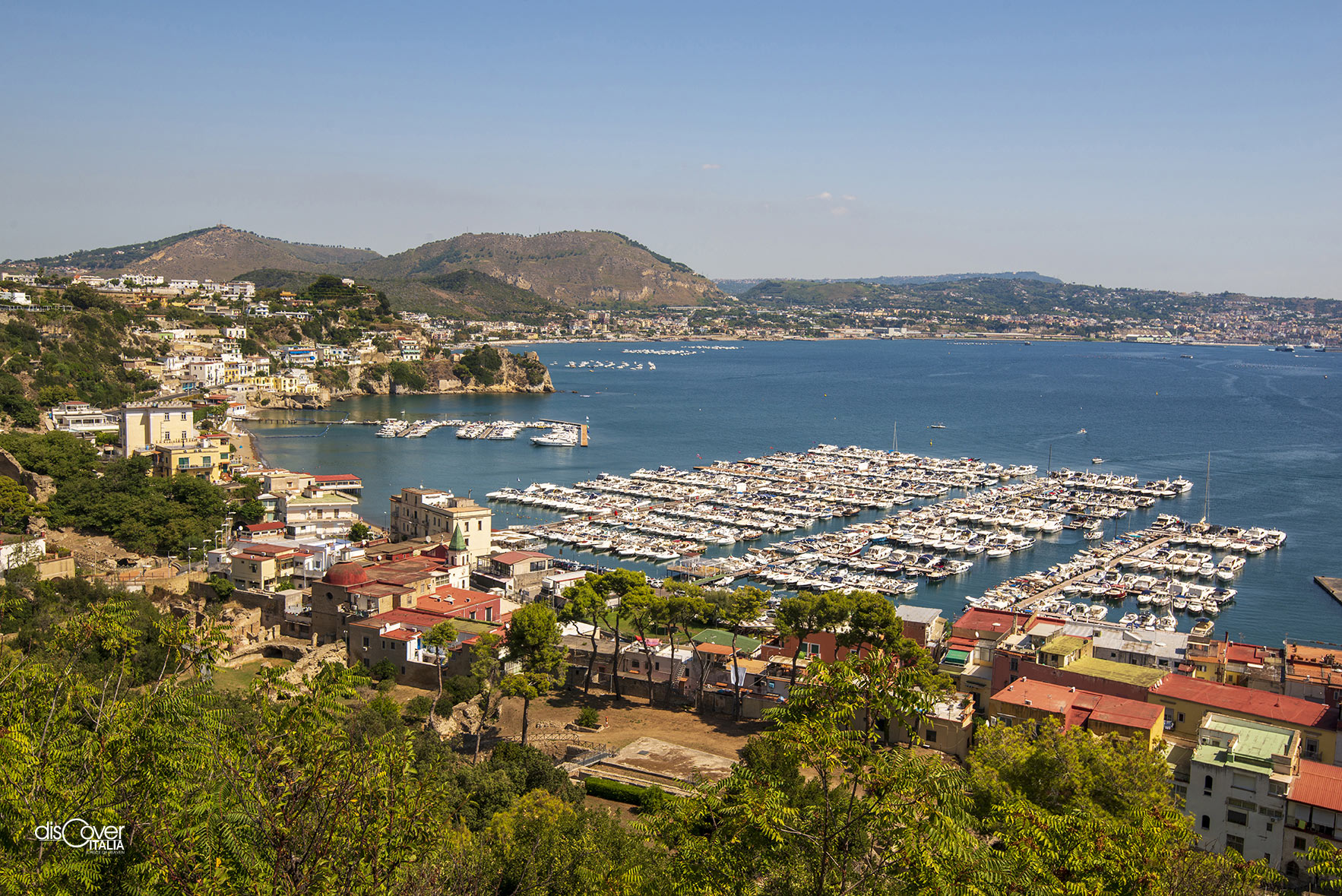
«No other place shines more than the pleasant Bay"
Orazio
The name of the bay is linked to the legendary trip of Ulysses who buried there his friend Bajos. It was the landing place of Cumae and especially the most exalted phlegraean location, praised and frequented for its environmental delights and for its thermal springs.